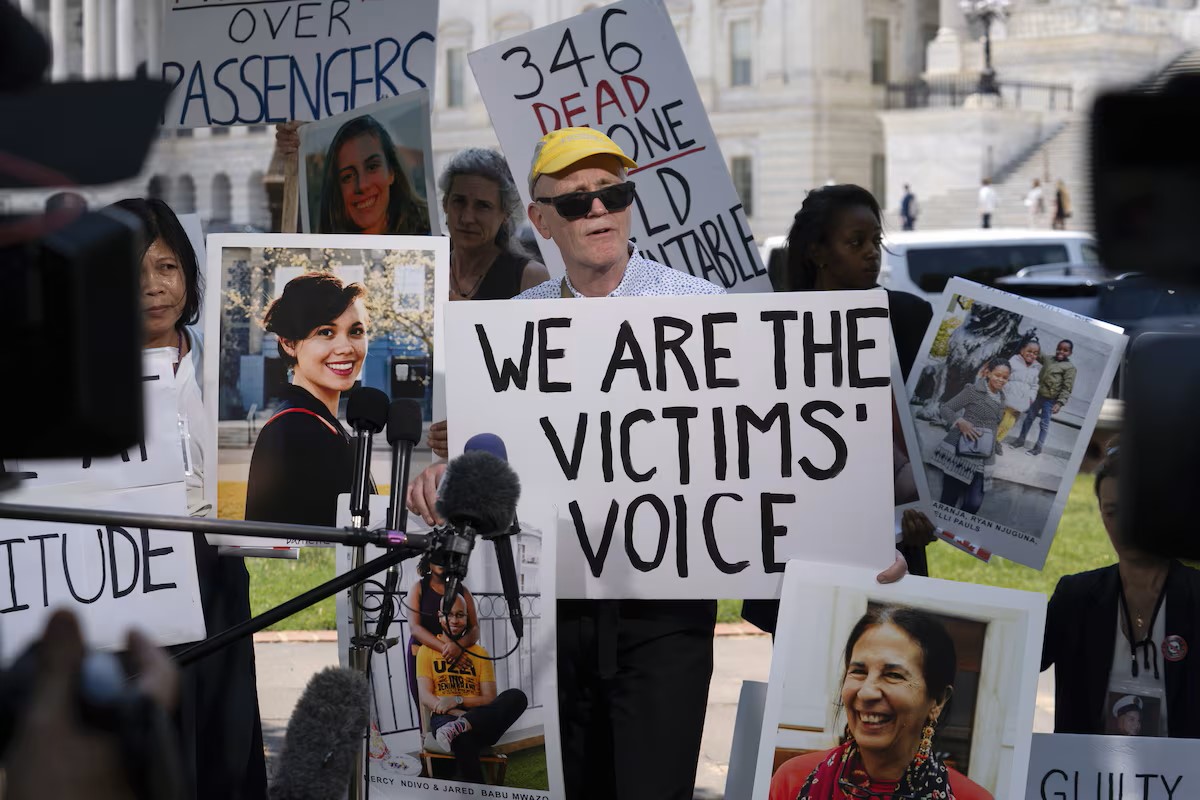In a significant legal setback for Boeing, U.S. District Court Judge Reed O’Connor rejected a plea agreement between the aerospace giant and the Department of Justice, citing concerns about its adequacy and oversight provisions. The agreement sought to resolve charges related to Boeing’s role in two fatal crashes involving the 737 Max aircraft, which together claimed the lives of 346 people and shook global confidence in aviation safety.
The plea deal, originally announced in July, involved Boeing admitting guilt to charges of conspiring to defraud the Federal Aviation Administration (FAA) during the certification process for the 737 Max. The deal required the company to pay $487 million in fines and operate under the supervision of an independent compliance monitor for three years. However, the judge expressed dissatisfaction with the deal’s structure, particularly the exclusive authority granted to the Justice Department to appoint the monitor. This arrangement, Judge O’Connor argued, sidelined the judiciary and undermined public confidence in the legal process.
The controversy surrounding the case stems from revelations that Boeing employees concealed critical information about the Maneuvering Characteristics Augmentation System (MCAS) during the FAA’s certification of the 737 Max. This software, designed to stabilize the aircraft during flight, instead caused both crashes by repeatedly pushing the planes into uncontrollable nosedives. Investigations revealed that Boeing prioritized production schedules and cost-saving measures over rigorous safety assessments, leading to the system’s approval despite its fatal flaws.
Victims’ families have been at the forefront of opposing the plea agreement, arguing that it fails to hold Boeing accountable for the full extent of its negligence. They contend that the proposed fine is woefully inadequate given the scale of the tragedy and the company’s profits from the 737 Max program. Paul Cassell, an attorney representing several families, described the court’s rejection of the deal as a victory for justice and a significant step toward ensuring corporate accountability.
The ruling also brings renewed attention to systemic issues within Boeing’s safety culture. Despite pledges of reform following the crashes, the company has continued to face criticism for prioritizing profits over passenger safety. Judge O’Connor pointed to a recent incident involving a door plug failure on a 737 Max as evidence that Boeing’s compliance with safety standards remains insufficient.
Boeing has yet to respond publicly to the court’s decision. The company had previously expressed regret for the crashes and accepted responsibility for the design flaws in the MCAS system. However, Boeing has maintained that its employees’ actions during the certification process did not directly cause the crashes, a claim echoed by the Justice Department in support of the original plea agreement.
The case also raises broader questions about the role of regulatory oversight in ensuring aviation safety. The FAA, which certified the 737 Max despite its flaws, has faced criticism for its reliance on data provided by manufacturers and its perceived lack of independence. Advocates for stricter safety regulations argue that the Boeing case highlights the need for systemic reforms to restore public trust in the aviation industry.
As the case proceeds, attention will turn to the possibility of renegotiating the plea agreement to include stricter penalties and more comprehensive oversight measures. For victims’ families, the rejection of the deal represents a chance to seek justice and ensure that the lessons of the 737 Max tragedy lead to lasting change in the aviation industry.






